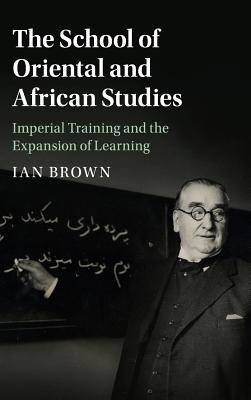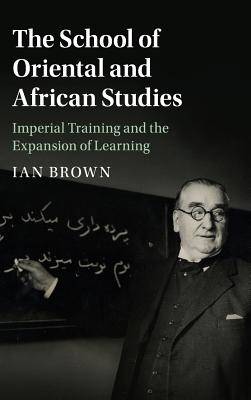
- Afhalen na 1 uur in een winkel met voorraad
- Gratis thuislevering in België vanaf € 30
- Ruim aanbod met 7 miljoen producten
- Afhalen na 1 uur in een winkel met voorraad
- Gratis thuislevering in België vanaf € 30
- Ruim aanbod met 7 miljoen producten
Zoeken
The School of Oriental and African Studies
Imperial Training and the Expansion of Learning
Ian Brown
Hardcover | Engels
€ 158,95
+ 317 punten
Omschrijving
The School of Oriental and African Studies, a college of the University of London, was established in 1916 principally to train the colonial administrators who ran the British Empire in the languages of Asia and Africa. It was founded, that is, with an explicitly imperial purpose. Yet the School would come to transcend this function to become a world centre of scholarship and learning, in many important ways challenging that imperial origin. Drawing on the School's own extensive administrative records, on interviews with current and past staff, and on the records of government departments, Ian Brown explores the work of the School over its first century. He considers the expansion in the School's configuration of studies from the initial focus on languages, its changing relationships with government, and the major contributions that have been made by the School to scholarly and public understandings of Asia, Africa, and the Middle East.
Specificaties
Betrokkenen
- Auteur(s):
- Uitgeverij:
Inhoud
- Aantal bladzijden:
- 346
- Taal:
- Engels
Eigenschappen
- Productcode (EAN):
- 9781107164420
- Verschijningsdatum:
- 1/09/2016
- Uitvoering:
- Hardcover
- Formaat:
- Genaaid
- Afmetingen:
- 152 mm x 229 mm
- Gewicht:
- 630 g

Alleen bij Standaard Boekhandel
+ 317 punten op je klantenkaart van Standaard Boekhandel
Beoordelingen
We publiceren alleen reviews die voldoen aan de voorwaarden voor reviews. Bekijk onze voorwaarden voor reviews.











